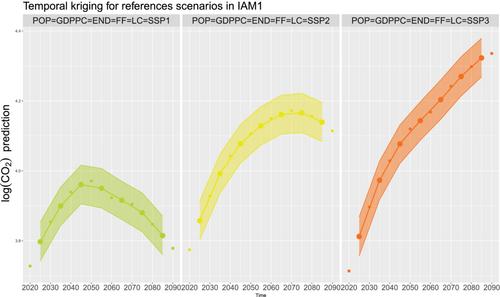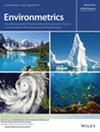未来气候变化情景下二氧化碳排放的贝叶斯功能模拟
IF 1.5
3区 环境科学与生态学
Q4 ENVIRONMENTAL SCIENCES
引用次数: 0
摘要
我们提出了一种基于函数回归框架的气候-经济确定性综合评估模型集合统计模拟器。未知参数的推断是通过一个混合效应分层模型进行的,该模型采用完全贝叶斯框架,所有参数向量都有一个先验分布。我们还建议对误差协方差矩阵进行自回归参数化,并采用匹配的边际先验。这样,我们就为模拟器的离散化输出建立了一个功能框架,从而可以对其进行时间连续评估。本文章由计算机程序翻译,如有差异,请以英文原文为准。

Bayesian functional emulation of CO2 emissions on future climate change scenarios
We propose a statistical emulator for a climate-economy deterministic integrated assessment model ensemble, based on a functional regression framework. Inference on the unknown parameters is carried out through a mixed effects hierarchical model using a fully Bayesian framework with a prior distribution on the vector of all parameters. We also suggest an autoregressive parameterization of the covariance matrix of the error, with matching marginal prior. In this way, we allow for a functional framework for the discretized output of the simulators that allows their time continuous evaluation.
求助全文
通过发布文献求助,成功后即可免费获取论文全文。
去求助
来源期刊

Environmetrics
环境科学-环境科学
CiteScore
2.90
自引率
17.60%
发文量
67
审稿时长
18-36 weeks
期刊介绍:
Environmetrics, the official journal of The International Environmetrics Society (TIES), an Association of the International Statistical Institute, is devoted to the dissemination of high-quality quantitative research in the environmental sciences.
The journal welcomes pertinent and innovative submissions from quantitative disciplines developing new statistical and mathematical techniques, methods, and theories that solve modern environmental problems. Articles must proffer substantive, new statistical or mathematical advances to answer important scientific questions in the environmental sciences, or must develop novel or enhanced statistical methodology with clear applications to environmental science. New methods should be illustrated with recent environmental data.
 求助内容:
求助内容: 应助结果提醒方式:
应助结果提醒方式:


